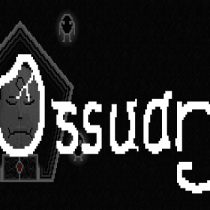Anyone familiar with fortune cookies will have heard the words ‘Life is a journey, not a destination’ – the most important aspect of the process of waking up each day, toiling away and falling asleep at the end isn’t the collection of achievements you die with, but the experience of observing all the little nuances and charms of the elegant world around you. Journey, a Playstation Network exclusive, exemplifies simple magnificence.
Despite their questionable name, Thatgamecompany have made a work of art worthy of any gallery. A small, sexually ambiguous robed figure embarks on a journey across a glittering desert which blankets a once-mighty but now ruined civilisation, and ends atop a desolate, snow-white mountain. Not a word is spoken throughout the entire two hours of gameplay. I can’t tell you why the little robed figure is crossing a desert, and I can’t tell you what he/she is hoping to achieve, but what I can tell you is that neither of these things matter. I never felt the knowledge was lacking. All I felt was wonder as I gazed at the beauty and vastness of the world around me. Is it post-apocalyptic? Is it a dream?

Everything about Journey is ambiguous in nature. The game instills a sense of insignificance in the player, not in a negative sense, but in the sense that you are lost in the huge environment around you. You’re a tiny grain of sand set against a backdrop of a billion other grains of sand, but you’re content just being a small part of something beautiful. As a game, I’m really not sure what I can say about it. It’s completely original, and I’ve never experienced anything like it before in my whole life as a gamer. I can’t say ‘the combat is good’ or ‘the story is immersive’ or ‘the characters are well-realised’ because it has none of these things. In terms of gameplay, it is little robed figure, running across the landscape, sometimes sliding down sand dunes, sometimes hiding in small, stone structures from giant, flying worm-like creatures, sometimes being tossed around by aggressive winds. All the player has to do is run, occasionally jump or glide, and release a musical note to trigger certain events, or just to communicate. The game is full of subtle ideas that really give a richness of tone, such as the aforementioned musical note that the player can emit at any stage always being in tune with the majestic soundtrack, helping the little robed figure feel completely in-tune with the tossing and turning around him/her.
The game largely revolves around scarves. Your character’s scarf seems to interact with the scarves the little robed figure comes across, sending a gentle pulse of light through any you touch, which in return give you strength and elevates you. The world you experience feels strangely lifeless, again not in a negative way, but in the sense that it has been long untouched by human destruction, even if the remnants of it are still visible. Any trace of humanity has been reclaimed by the elements. The landscape is inhabited by strange, creatures, similar to jelly-fish but consisting of scarves, that majestically sweep around the player, aiding him where they can. In return, you are often given the opportunity to rescue them from behind ancient bars, and there is an uplifting joy to be found in giving strangely animated squids their freedom.

The game’s greatest achievement by far though is the affinity it provokes between players. Journey is played online, and your experience will often be shared by anonymous companions, controlled by other players. Online gaming usually brings out the worst in people, with hate being practically consequence free and the sexual molestation of corpses being almost encouraged by convulsing COD-players. Journey induces feelings of compassion and care towards your companions as you traverse the wildernesses together, sending rhythms of light through each other each time you grow close. The attachments I formed to the players who joined my game astonished me. I often found myself helping a player understand how to reach a platform, or waiting for them if they fell behind, or communicating with them through musical notes in a way that offered more understanding than any amount of words could have done. When I did fall behind so much that the other players disappeared from view, or vice-versa, or when my companion sat in the sand, never to stand up again, I genuinely felt a sense of loneliness as I set off to continue my journey alone, sadly awaiting the next companion.
Possibly the most poignant and emotional event in the game was when a fellow traveller and I were suffering through climbing the mountain together, and as we gained sight of the summit, a sudden, violent gust of ice-cold wind crashed upon us. I tumbled into a pillar and withstood the howling gale, but my companion flew helplessly off the side of the mountain, and disappeared from my view. I felt a distinct sense of loss and I faced the prospect of the rest of the game alone, knowing the end of the journey grew near. The transition between players the game partners you with is so smooth it is impossible to notice. It isn’t as if the player pops onto the screen randomly when they join your game, if you lose sight of a partner, you’ll persevere through the oncoming winds to catch up with him/her to carry on together, side by side, not realising that this is a different partner to the one you had a thirty seconds ago. This helps to avoid any loss of connection between the two wanderers. By the end of the game, I thought I’d had two or three different partners. It turned out I’d had 8.

If there is anything to be taken away from this little distraction from your day-to-day routine, it’s this: if you haven’t already, please play Journey. It’s the single-most beautiful game I have ever played. I often stopped myself whilst atop a sparking sand dune as the sun shone across the horizon, and I thought ‘what is the point of this game?’ I am no stranger to pretension when it comes to video games, so as Oscar Wilde put it: ‘art for art’s sake’. Journey doesn’t need a goal to define its existence; the experience is enough. To conclude also in the words of Oscar Wilde: ‘One should always eat muffins quite calmly. It is the only way to eat them’
© 2013 – 2014, zero1gaming.com. All rights reserved. On republishing this article your must provide a link to this original post
About Joseph Butler-Hartley
A jaded horror enthusiast, I get my kicks hiding in cupboards from whatever hideous creatures happen to be around. However, I'm more than happy playing a wide range of genres on both consoles and PC. Apart from writing for Z1G, I'm also a History student.
•




